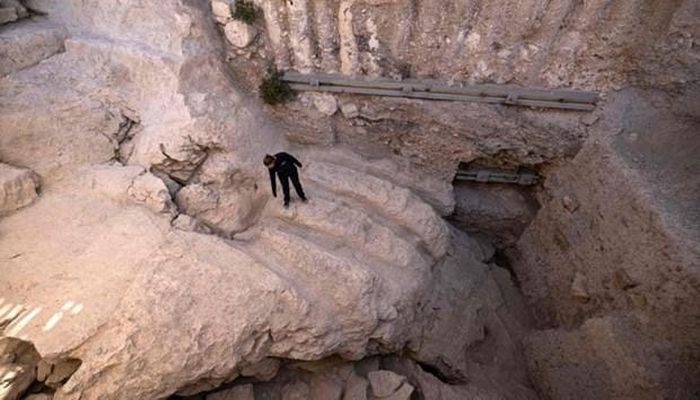According to Israeli archaeologists, stone pipes believed to be constructed 2,800 years ago have been discovered outside the Old City of Jerusalem, divided into two clusters that are 10 meters apart.
Recently, Israeli archaeologists excavated a network dating back nearly 3,000 years, consisting of hewn stone pipes in the city of Jerusalem.

Hewn stone pipes recently excavated by Israeli archaeologists. (Source: The News).
The stone pipes are believed to have been built 2,800 years ago, located outside the Old City of Jerusalem. These conduits are split into two clusters, with a distance of 10 meters between them.
According to the Israel Antiquities Authority, archaeologists did not find any traces of blood, which may rule out the possibility that these pipes were used for animal slaughter during feasts or sacrifices.
The conduits also do not appear to channel water in one direction or lead into any basins, indicating that they were not utilized for wastewater or rainwater drainage.
Archaeologist Yiftah Shalev stated that many mysteries remain regarding this network of pipes.
Archaeologists have not yet determined the purpose of these conduits due to a lack of data in biblical texts or any documents relating to Jewish structures that may have been nearby.
According to archaeologist Yuval Gadot, these conduits may have been used for the production of “a type of commodity,” such as linen, which requires soaking flax in water for an extended period before use. Another possibility is that these pipes were used to store dried dates during the process of making date honey.
This discovery is located within the City of David National Park in Israel and will be open to visitors starting next week.




















































